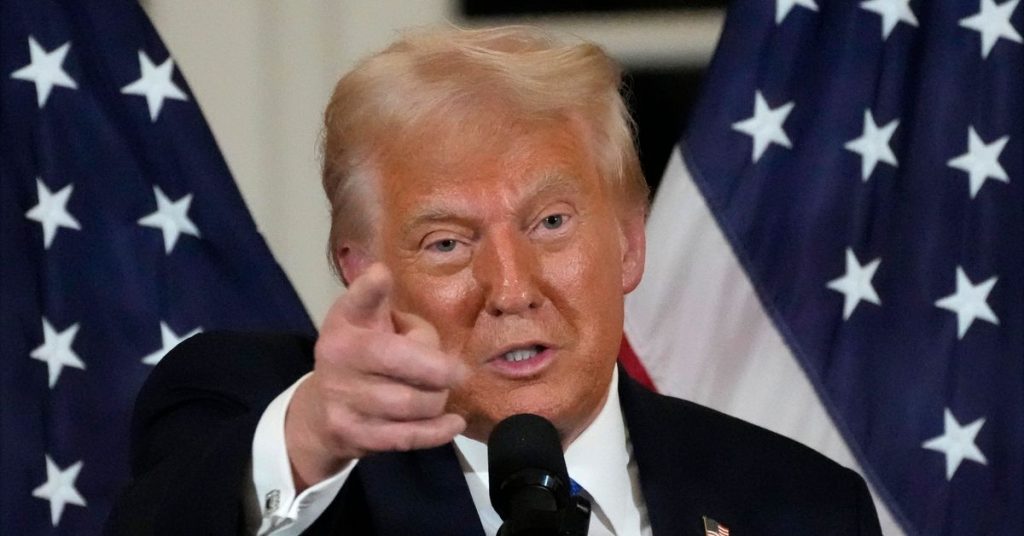CAPE TOWN, South Africa (AP) — A recent announcement by former U.S. President Donald Trump to offer refugee status and resettlement to South Africa’s white minority has sparked widespread debate and reaction across the country. In an executive order signed last Friday, Trump halted all aid and financial assistance to South Africa, citing what his administration described as “rights violations” against white citizens, particularly Afrikaner farmers. This move has been met with a resounding “thanks, but no thanks” from groups representing the Afrikaner community, who have made it clear they want to remain in their homeland and build a future there.
The Trump administration has accused the South African government of failing to protect white farmers from violent attacks and of implementing a controversial land expropriation law that allows the state to seize land from ethnic minority Afrikaners without compensation. However, these claims have been met with strong denials from South African officials, who argue that Trump’s portrayal of the situation is riddled with misinformation. The land expropriation law, they explain, is a necessary step toward addressing historical injustices caused by colonialism and apartheid, which stripped Black South Africans of their land and rights.
Afrikaners, who are descended from Dutch, French, and German settlers who arrived in South Africa more than 300 years ago, are a distinct cultural group within the country’s white minority. They speak Afrikaans, a language derived from Dutch, and have a unique identity that sets them apart from other white South Africans, such as those of British or Portuguese descent. Whites as a whole make up approximately 7% of South Africa’s population of 62 million, with Afrikaners forming the largest subgroup within this demographic.
In response to Trump’s offer, leaders of prominent Afrikaner organizations, such as the trade union Solidarity and the lobby group AfriForum, held a press conference to express their commitment to remaining in South Africa. “Our members work here, and they want to stay here,” said Dirk Hermann, CEO of Solidarity, which represents around 2 million people. “We are committed to building a future here. We are not going anywhere.” Kallie Kriel, CEO of AfriForum, echoed this sentiment, stating, “We have to state categorically: We don’t want to move elsewhere.”
Despite their rejection of Trump’s offer, the situation has highlighted the deep-seated tensions and challenges facing South Africa as it grapples with its complex history and ongoing efforts to achieve racial equality. The government has long been working to address the legacies of apartheid, which ended in 1994, through policies such as land reform and affirmative action. However, these efforts have been met with resistance from some white South Africans, who feel unfairly targeted or excluded from the economic opportunities enjoyed by the majority.
The South African government has slammed Trump’s move as a form of modern-day propaganda aimed at undermining its efforts to create a more equitable society. “It is ironic that the executive order makes provision for refugee status in the U.S. for a group in South Africa that remains amongst the most economically privileged,” said the Foreign Ministry in a statement. The government has also criticized the double standard of offering refuge to a relatively privileged group while ignoring the plight of more vulnerable populations around the world.
